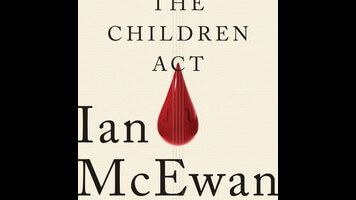Ian McEwan’s latest novel is well executed and tidy, if unremarkable

Ian McEwan’s 13th novel, The Children Act, is so perfectly made, well-mannered, studied, and astute, any reader desperate for a story (or prose style) that illuminates or shocks could be forgiven for wanting, at times, to dash this tome on a hard surface as if it were a too-pretty English teapot. This is not a condemnation of polite literature so much as it is the particular frustrations that abound, page after page, in this particular McEwan book. Not all novels should alarm or aspire to Technicolor trickery, but no novel should get away with being this, well, beige.
The story’s first concern involves the betrayal of High Court judge Fiona Maye by her husband, Jack, a professor, who childishly pines for sexual congress with a much younger statistician named Melanie. The novel opens with Jack asking not for divorce, but permission. Fiona and Jack are both 60, married for half that time, and the novel begins with the type of tense domestic scene McEwan has proven so adept at evoking in previous works, such as the brief and superior On Chesil Beach. McEwan can be masterful in small spaces (see also: Saturday), but as The Children Act moves from the Maye household and into the stream of its proper plot, the story becomes the rigid, austere equivalent of Fiona Maye herself. And that, of course, is the point.
As High Court judge, Fiona works in family law, charged with high-profile cases almost exclusively concerning the welfare of children. As her private life unravels, she is presented with the peculiar predicament of one Adam Henry, a not-quite-18-year-old boy whose parents refuse to permit him the blood transfusion that would save his life. The Henrys are Jehovah’s Witnesses whose tenets forbid the procedure. With Adam nearing death and not yet fully an adult in the eyes of the law, his parents’ wishes cannot be breached. Adam too refuses the treatment, precluding any legal maneuver that might declare him a de facto adult at 17.
The recent disruption in her marriage has Fiona thinking again (as she often does during stressful cases) of her own childlessness. The sick boy is beautiful. An uncharacteristically spontaneous hospital visit has Maye dropping her guard to sing, of all things, as Adam precociously plays violin from his bed. He also writes poetry, some of which he reads to her. It becomes clear that the judge’s reliable clinical resolve has been shaken by the visit, her judicial clarity blurred by the young man’s charm.
Throughout, McEwan writes with the similar logic and efficiency with which this protagonist hands down carefully deliberated judgments, and there are some interesting passages exploring the complications that arise when religious belief intersects with established law. An allusion to Gustave Flaubert’s Sentimental Education is included to satisfy the well read, as is a conclusion that involves an English rainstorm and a classical-music performance that seems plucked straight from an unrealized script by Graham Greene.
As it happens, Fiona Maye is also a pianist. Tellingly, in one of the novel’s later passages, she recalls a time when her husband bought her the sheet music for Thelonious Monk’s “’Round Midnight.” She finds it easy to play yet “her version, smooth and unaccented, sounded like an unremarkable piece by Debussy.” In the final judgment, The Children Act is a good novel. Too neat, too tidy, not a jazzy flourish in sight, but one could do much worse than an unremarkable book by McEwan.